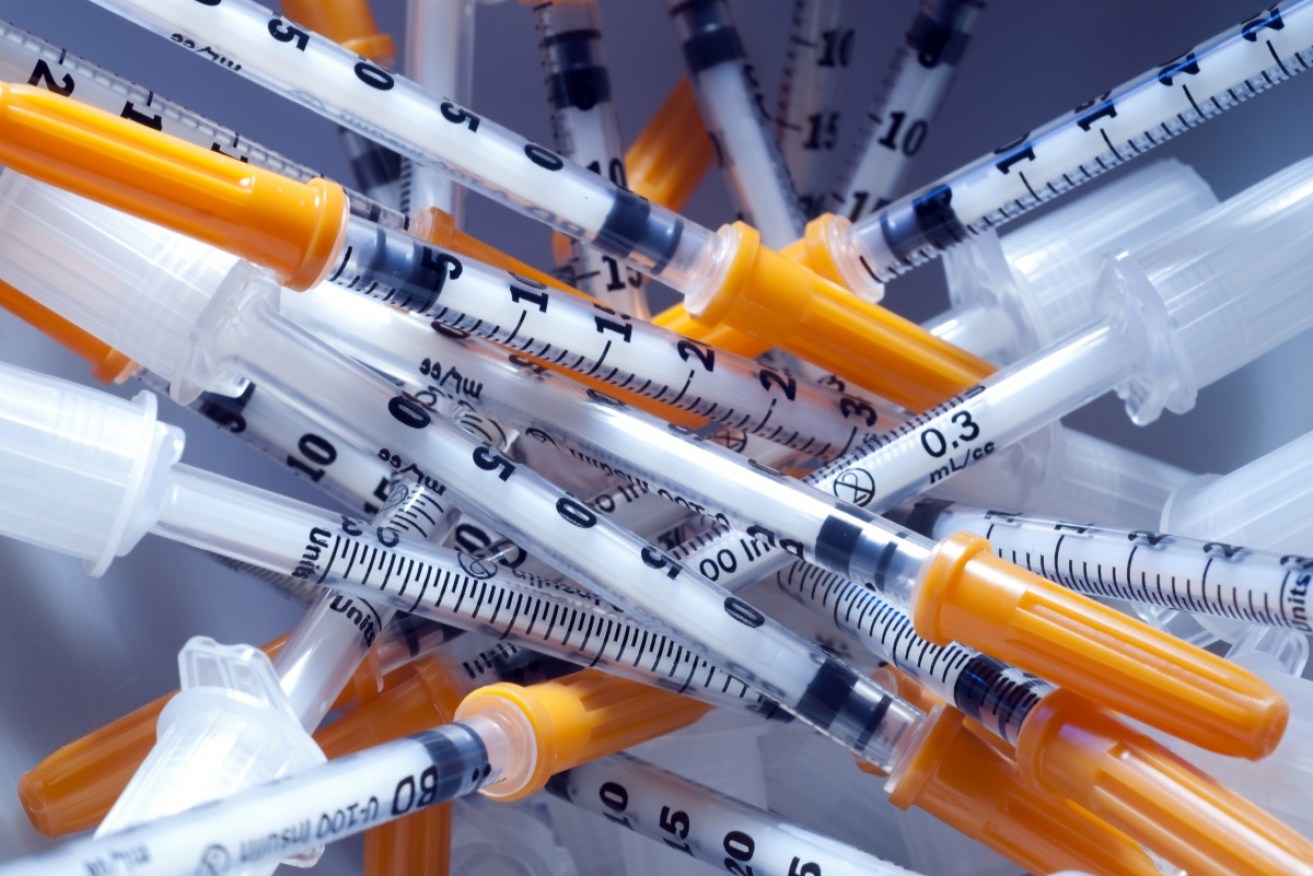Needles used as jail ‘currency’ for drugs

Shutterstock
Needle and syringe programs in prisons would arm inmates and give them a currency with which to buy drugs, putting prison staff at risk, a parliamentary inquiry has heard.
Public health advocates are calling for syringe programs to be implemented in prisons to stem high rates of hepatitis C infection among Australian prisoners.
It’s estimated one in two prisoners are living with the disease, which is typically spread by sharing needles to inject illicit drugs.
• Bali Nine families ‘don’t deserve apology’
• Labor holds ‘strong’ lead: poll
• Abbott defied Defence on subs
Health advocates say it’s a breach of human rights that prisoners aren’t being provided with clean needles.
But unions say the move would put prison staff at risk.
A House of Representatives inquiry into hepatitis C has heard one single needle tip can fetch $150 to $200 in prison, with needles often rented out in exchange for drugs.
Supplying clean needles to prisoners would therefore create a prison currency, WA Prison Officers’ Union assistant secretary Andrew Smith said.
“It needs to be recognised that they are currently a currency within the prison,” Mr Smith told the hearing in Canberra on Monday.
“It’s a very, very expensive commodity and by providing them into the prison, you’re providing a currency.”
Troy Wright from the Community and Public Sector Union said a syringe program would pose serious and tangible risks to prison guards, either through accidental needle stick injuries or needles being used as weapons.
But Mark Stoove, associate professor at the Burnet Institute, said evidence from countries that had already implemented prison syringe programs suggested no reported incidents of needles being used as weapons or an increase in trafficking or drug use.
Instead, it increased participation in drug treatment programs and reduced blood-borne disease transmission, he said.
– AAP







